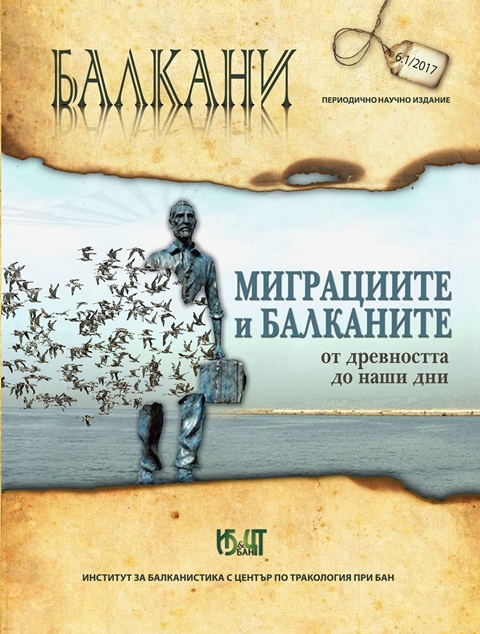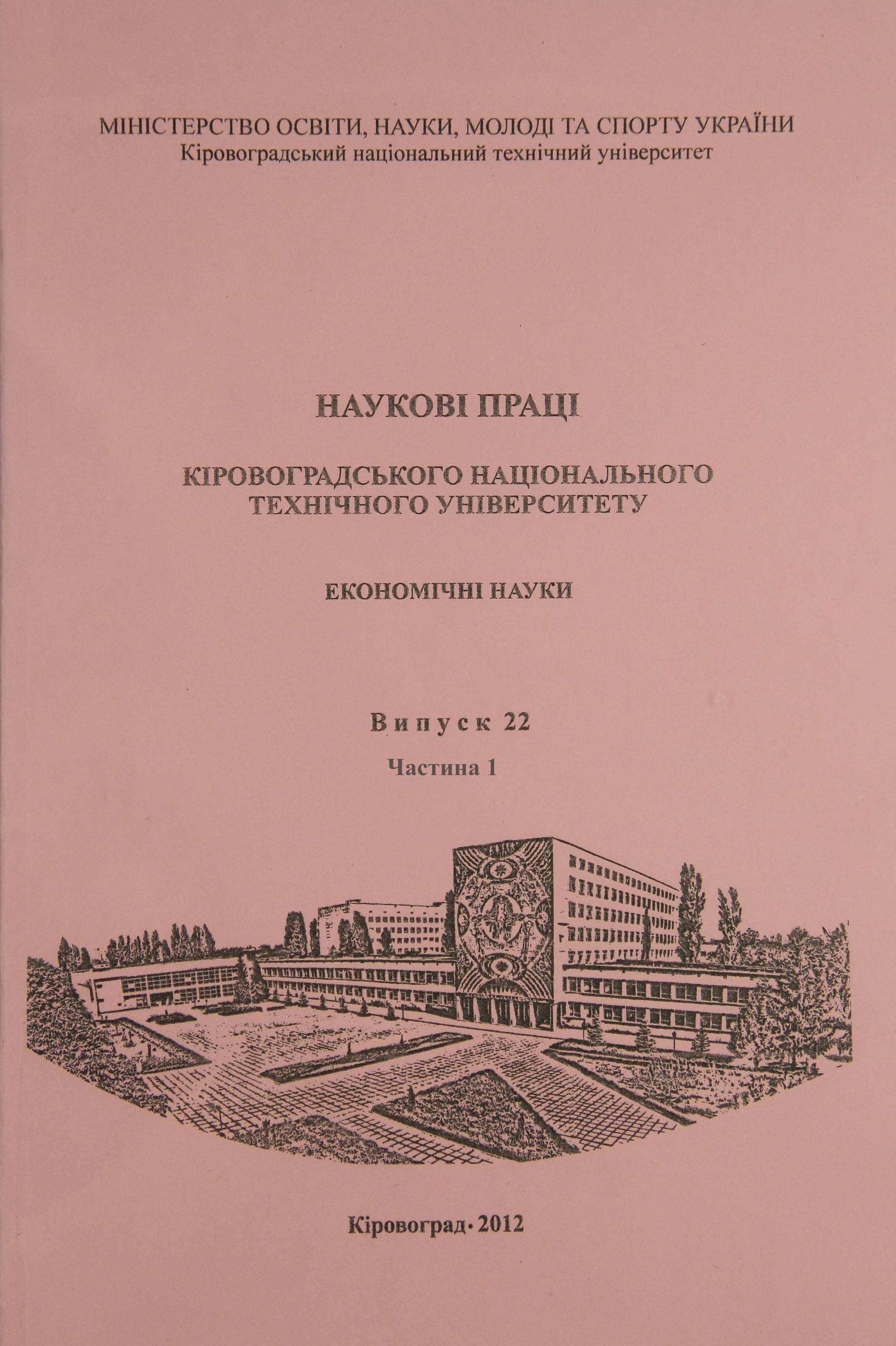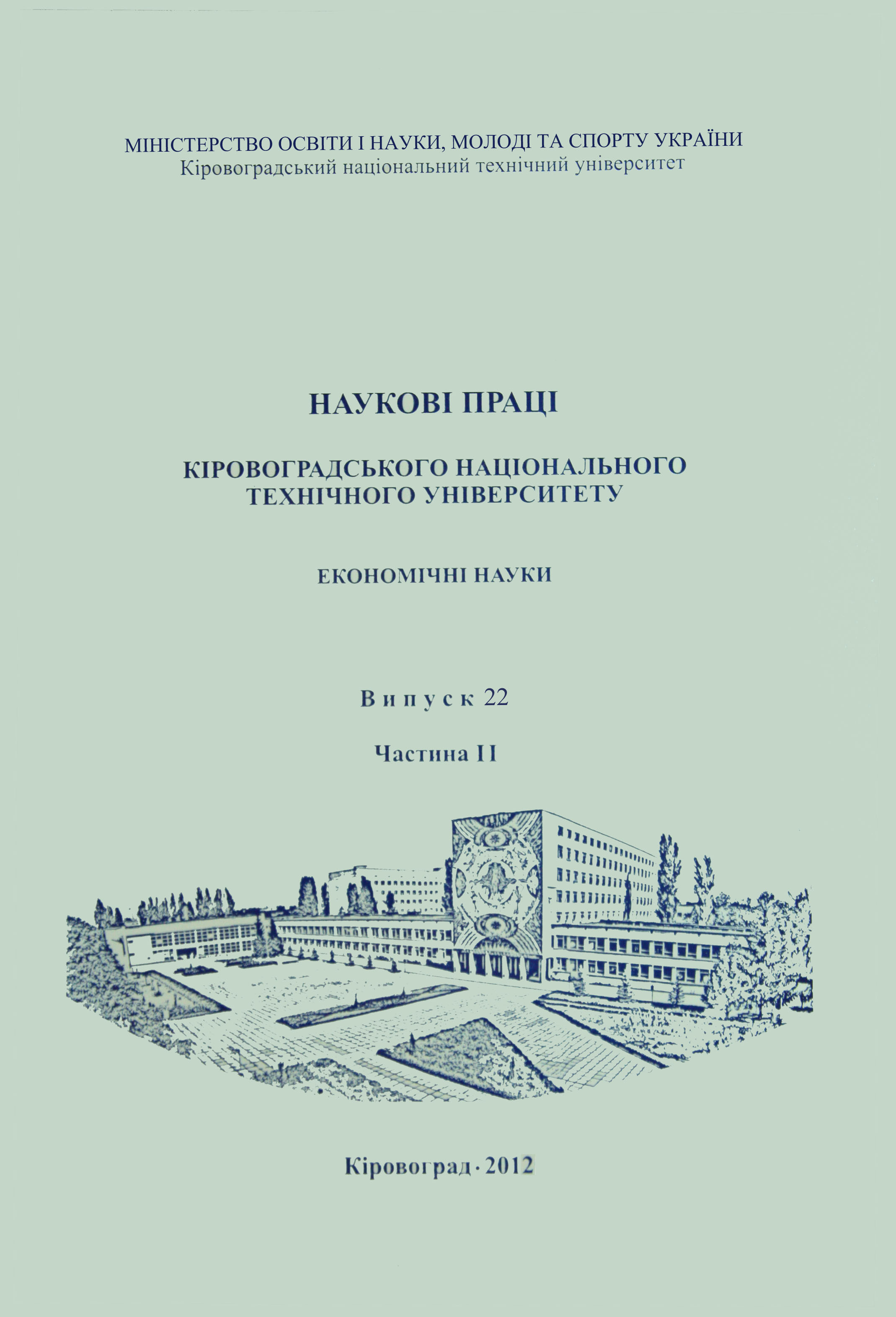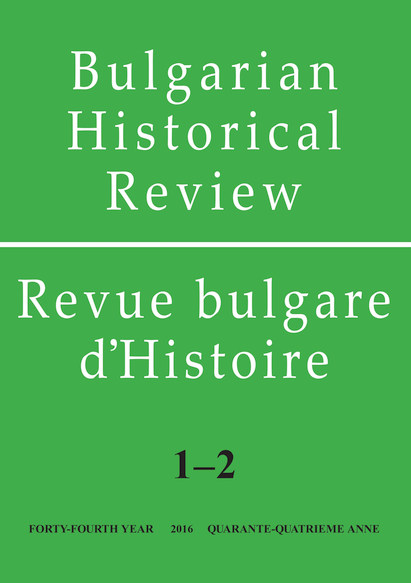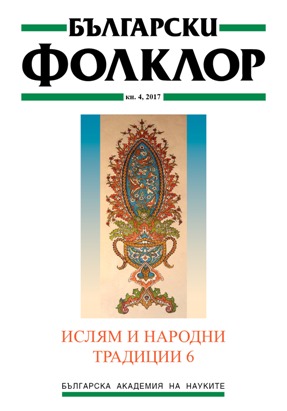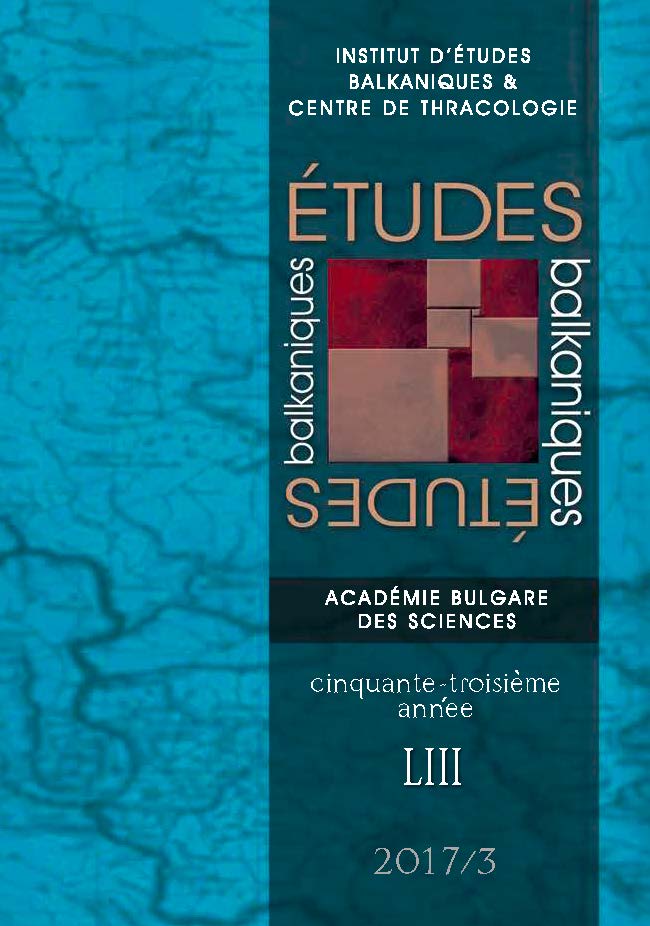
TRADE NETWORKS AND NATIONAL IDENTITY IN SALONICA IN THE 1860s AND 1870s
The article examines the process of separation of the Bulgarian community in Salonica from the Greek one in the 1860s and 1870s. Based on the example of the relationships between the Robev brothers and their Greek and Bulgarian trading partners, it examines the arduous and ambiguous course of national identity establishment in the period of disintegration of the Ottoman Empire. In the case of the Bulgarians in Salonica this process was further delayed by their small numbers in the city and by the tough competition on the part of the European and Jewish merchants to which they were exposed. The text features the different national choices made by individual families and by the different generations in order to trace the mechanisms that led to the establishment and consolidation of the Bulgarian national community in the city.
More...
